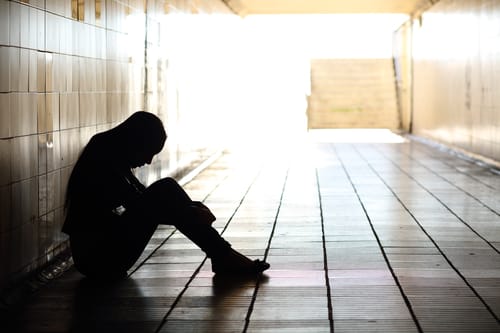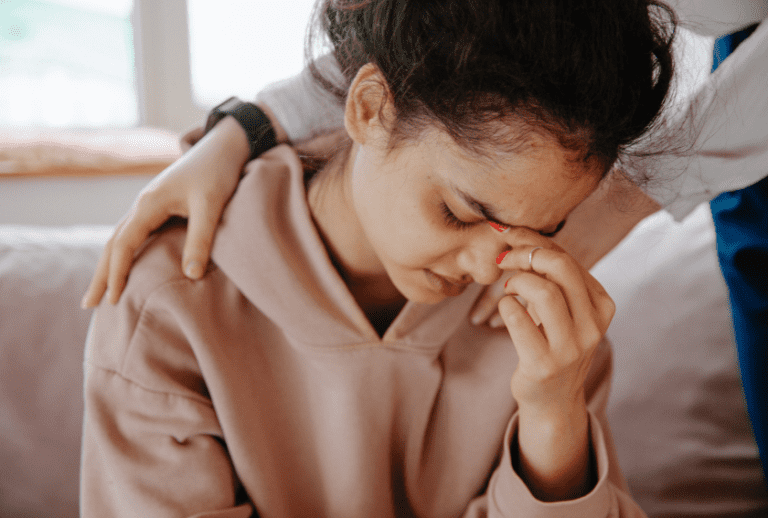Some addictive substances are more likely to cause an overdose than others. Typically, the more potent the substance, the more likely an overdose becomes. If you or a loved one is struggling with heroin addiction, it is important to know the dangers of abuse, the symptoms of a heroin overdose, and what to do if someone has overdosed.
Dangers of Heroin Use
Heroin is up to 3 times more potent than morphine and is one of the main contributors to America’s ongoing opioid epidemic. This drug is an opioid and is classified as a central nervous system depressant. When used, heroin suppresses the respiratory system, resulting in dangerously low oxygen levels which inflict damage to the body’s vital organs over time.
Opioids suppress breathing by changing neurochemical activity in the brain stem, where automatic body functions such as heart rate and breathing are controlled. Due to the depressant nature of heroin, a common cause of overdose fatality is breathing cessation.
Because injection is the most common method of using heroin, the risk of contracting blood-borne viruses is high when administering this drug. Hepatitis and HIV are both viruses that can be easily contracted through the use of contaminated needles. These viruses can be fatal if left untreated.
Can You Overdose on Heroin?
Yes. heroin overdoses are very common due to the potency of this potent opioid. A recent study shows that out of the 841,000 people who have died in the past two decades from a drug overdose, 70% of those fatalities involved an opioid. That means 588,700 people have overdosed on an opioid in the last twenty years.
Symptoms of Heroin Overdose
There are warning signs to look for if it is suspected that you or someone close is experiencing a heroin overdose. The signs include:
- Pale skin
- Seizures
- Unconsciousness
- Shallow breaths
- Weak pulse
- Disorientation
- Breathing cessation
What To Do in The Event of a Heroin Overdose
If an individual is experiencing a heroin overdose, it is important to call 911 immediately. While waiting for medical assistance, attempt to keep the individual conscious by talking to them. To help prevent cardiac arrest, rub the person’s chest forcefully. If they begin having a seizure, keep them away from any surrounding objects to prevent bodily injury.
Once on the scene, medical professionals will likely administer an emergency medication called Narcan which is used to reverse the side effects of an opioid overdose. The individual will then be taken to a nearby hospital for treatment and observation. In the event that a person survives a heroin overdose, it is crucial that they seek professional addiction treatment.
If a heroin overdose occurs, it is likely that it will happen again if the abuse is left untreated.
Heroin Addiction Treatment
Heroin is a highly addictive substance and abusing this drug can be life-threatening if left untreated. Fortunately, help is available for those battling this addiction. Depending on the stage of an individual’s addiction, they may require detox, an intensive treatment program, or both. Fortunately, Knoxville Recovery Center offers various services to those struggling with this addiction.
Services offered:
Detox – Our on-site detox clinic accommodates and supports clients as the body sheds all residual traces of heroin. Clients are under medical supervision during the detox process to ensure that they remain safe and comfortable.
Addiction Treatment – During our addiction treatment program, clients will engage in introductory therapies and exercises that work to prepare them for continued, more intensive treatment outside of our facility. The goal of our addiction treatment track is to stabilize clients so that they are treatment-ready.
Mental Health Treatment – Our mental health treatment program introduces behavioral therapies rooted in self-expression and holistic exercise. Art therapy, music therapy, and yoga are just a few forms of therapy we offer at the center. Our goal is to help the client reclaim their voice and expose them to treatment within a professional facility.
Aftercare Planning – Aftercare is designed for individuals who have benefitted from our introductory addiction services and are transitioning into a more intensive addiction treatment program. Once a client is stabilized, they will be encouraged to pursue continued addiction treatment. Our experienced case managers will then work with our clients to place them in a program that addresses their specific wants and needs. Addiction is difficult to overcome alone. If you feel that you or a loved one is struggling with heroin addiction, our specialists are on standby and ready to help. Call Knoxville Recovery Center and speak with an addiction expert today.











